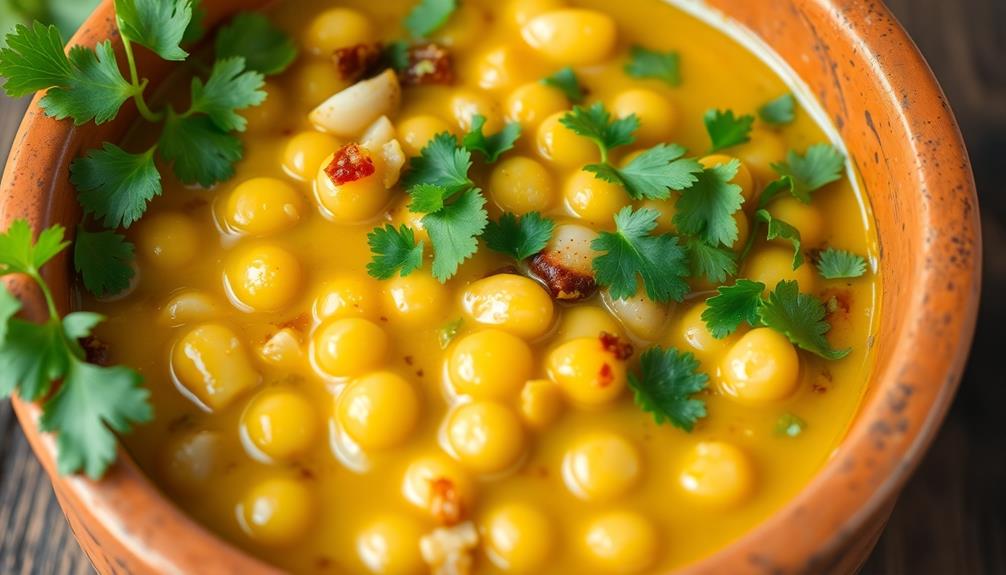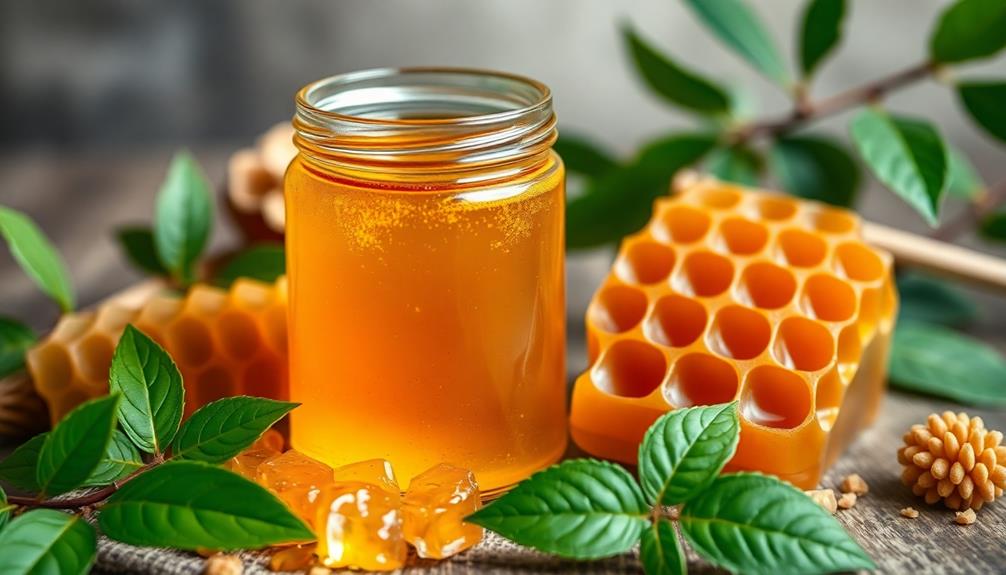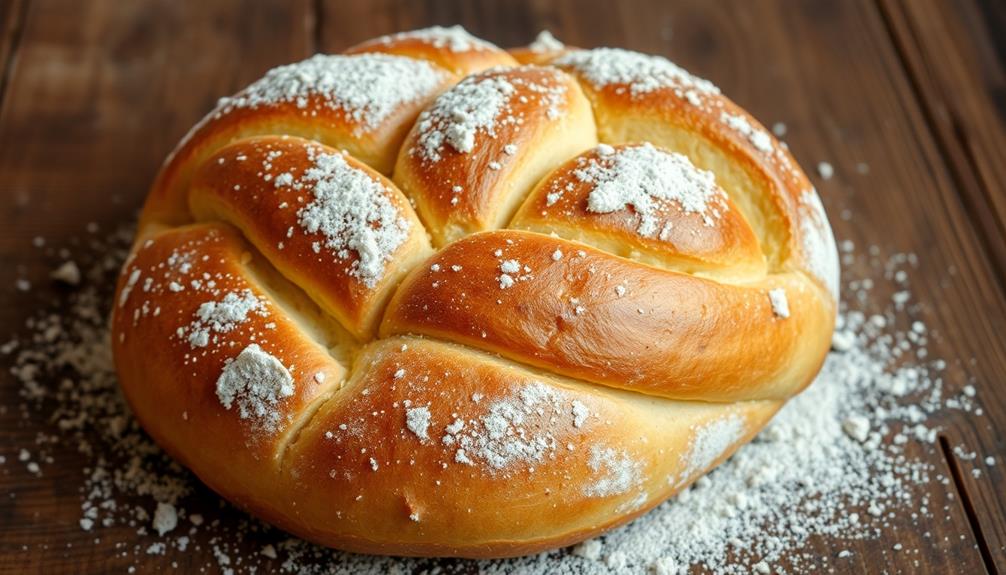Aterkik Alicha, the beloved yellow split pea stew, is a cherished Ethiopian dish that's rooted in rich cultural traditions. This comforting creation brings families and communities together, often enjoyed during special occasions and religious holidays. The mild, vibrant stew features a blend of yellow split peas, aromatic spices, and tender vegetables – a nourishing option for both body and soul. To prepare it, you'll start by soaking the peas, then sauté the aromatics and simmer everything until the peas are tender. Serve it hot with injera, the staple Ethiopian flatbread, for a truly authentic experience. Let's dive deeper into this beloved dish and explore its history and cooking secrets.
Key Takeaways
- Aterkik Alicha is a traditional Ethiopian vegetarian stew made from yellow split peas, known for its mild flavor and vibrant yellow color.
- It is a comfort food that fosters community and family connections, often enjoyed during religious holidays and special occasions in Ethiopian culture.
- The dish emphasizes the importance of communal meals and celebrates the connection between food and cultural identity in Ethiopia.
- Key ingredients include yellow split peas, aromatic spices like turmeric, garlic, and ginger, as well as onions and tomatoes.
- Slow simmering is crucial for developing the flavors and achieving the desired texture, and the stew is typically served with injera, a staple Ethiopian flatbread.
History
Aterkik alicha, a beloved Ethiopian dish, has a rich and storied history that dates back generations. This hearty yellow split pea stew has long been a staple in Ethiopian cuisine, deeply rooted in the country's cultural and culinary traditions.
Over time, the recipe has evolved, with each region and family putting their own unique spin on the dish. Some add berbere, the iconic Ethiopian spice blend, while others incorporate fragrant niter kibbeh, a clarified butter infused with aromatic spices.
The end result is a comforting, flavorful stew that has become a beloved part of Ethiopia's diverse and vibrant food heritage.
Whether enjoyed as a simple weeknight meal or as part of a larger feast, aterkik alicha continues to bring families and communities together, celebrating the rich tapestry of Ethiopian culture.
Its enduring popularity is a testament to the dish's timeless appeal and its ability to nourish both body and soul.
Recipe
Aterkik Alicha is a flavorful Ethiopian vegetarian dish made with spiced yellow split peas. The combination of aromatic spices, onions, and garlic creates a rich and comforting meal that's perfect for a cozy evening. For added texture and heartiness, Aterkik Alicha is often served with injera, a spongy sourdough flatbread that is perfect for soaking up the flavorful sauce. Another traditional Ethiopian dish that pairs well with Aterkik Alicha is Doro Wat, a spicy chicken stew that adds a nice contrast of flavors to the meal. For a complete Ethiopian dining experience, consider also trying the traditional Ethiopian potato stew recipe, known as Dinich Wot, which features tender potatoes cooked in a spicy and fragrant sauce.
This dish is typically served with injera, the spongy Ethiopian flatbread, which helps to soak up the delicious sauce. Aterkik Alicha is also a versatile dish that can be enjoyed on its own or alongside other Ethiopian dishes, such as sautéed greens or stewed meat.
- Yellow split peas
- Onion
- Garlic
- Ginger
- Turmeric
- Berbere spice mix
- Vegetable oil
- Salt
- Water
In a large pot, sauté the onions and garlic in vegetable oil until translucent. Add the ginger, turmeric, and berbere spice mix, and cook for 2-3 minutes until fragrant.
Add the yellow split peas and water, and bring to a boil. Reduce heat to low, cover, and simmer for 30-40 minutes, stirring occasionally, until the peas are tender and the sauce has thickened.
It's important to note that the cooking time for the split peas may vary depending on their age and freshness. Additionally, you can adjust the amount of berbere spice to suit your desired level of heat and flavor.
Serve Aterkik Alicha hot, accompanied by injera or your choice of sides.
Cooking Steps
First, you'll want to soak the split peas overnight and then drain and rinse them.
Next, sauté the onions and garlic until fragrant.
Step 1. Soak Split Peas Overnight
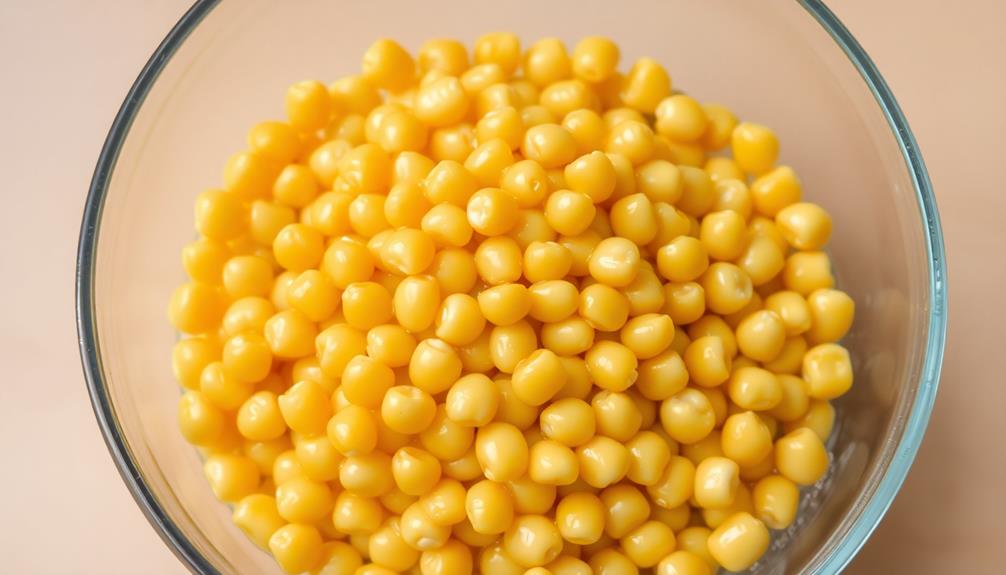
To begin the cooking process, you'll want to soak the split peas overnight. This important step helps to soften the peas and reduces their cooking time.
Start by rinsing the split peas in a colander under cool running water. Then, place them in a large bowl and cover them with at least 2 inches of water. Let the peas soak for 8 to 12 hours, or overnight.
Soaking the split peas breaks down their complex starches, making them easier to digest. It also helps to remove any impurities or debris that may be present.
Once the soaking time is up, drain the peas in the colander and give them a final rinse. You're now ready to move on to the next step in the Aterkik Alicha cooking process.
The soaked peas will cook much more quickly, allowing the flavors to meld together perfectly in this delicious stew.
Step 2. Drain and Rinse Split Peas
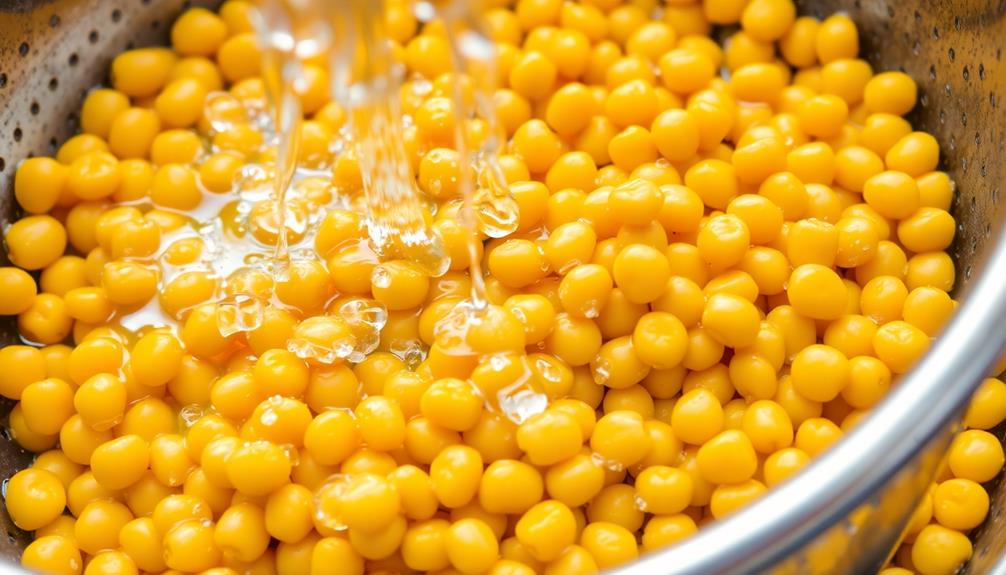
After letting the split peas soak overnight, it's time to drain and rinse them. First, grab a colander and place it in the sink. Carefully pour the soaked peas into the colander, allowing the water to drain out.
Once the peas are drained, give them a good rinse under cool running water. Gently swish the peas around to remove any remaining dirt or debris. This step is crucial to ensure your Aterkik Alicha has a clean, fresh flavor.
Now that the peas are drained and rinsed, you're ready for the next step. Transfer the clean split peas to a pot or bowl, ready to be cooked. Soaking and rinsing the peas helps break down their tough outer skins, making them more tender and easier to digest.
With this simple preparation, you're one step closer to enjoying a delicious Aterkik Alicha. Get ready to infuse your kitchen with the vibrant, earthy aroma of this beloved Ethiopian stew!
Step 3. Sauté Onions and Garlic

With the split peas drained and rinsed, you'll now begin the aromatic foundation of your Aterkik Alicha by sautéing the onions and garlic. In a large pot or Dutch oven, heat a few tablespoons of oil over medium heat.
Once the oil is shimmering, add the diced onions and sauté, stirring occasionally, until they're soft and translucent, about 5-7 minutes.
Next, mince the garlic cloves and add them to the pot. Continue sautéing for an additional 1-2 minutes, until the garlic is fragrant and lightly golden. Be careful not to let the garlic burn, as that can create a bitter flavor.
The combination of sautéed onions and garlic will create a flavorful base for your Aterkik Alicha, laying the groundwork for the layers of spices and seasonings to come.
Keep a close eye on the pot, adjusting the heat as needed to prevent burning, and get ready to add the next ingredients.
Step 4. Add Split Peas, Stock, and Spices
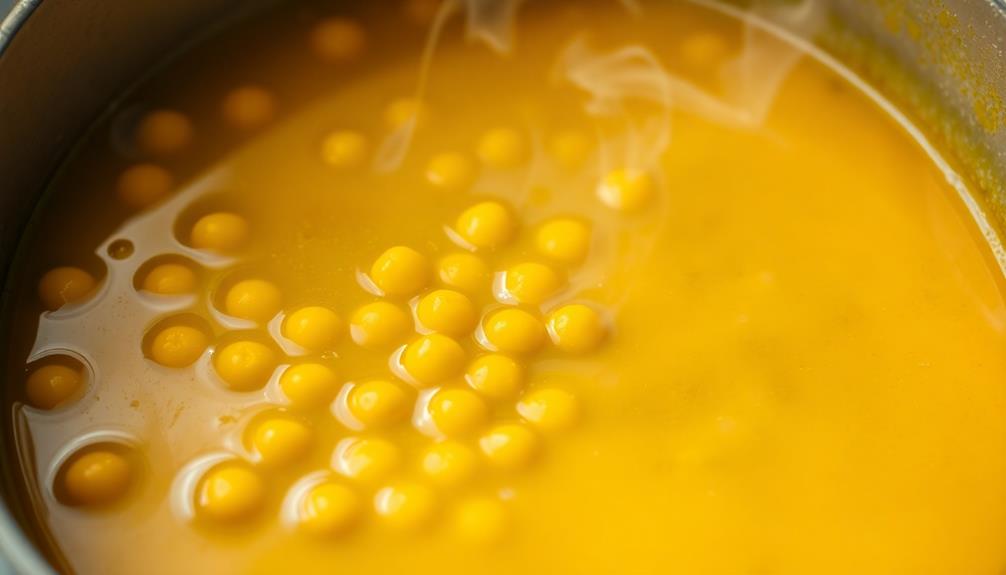
Next, add the drained and rinsed split peas to the aromatic onion and garlic mixture.
Pour in the vegetable or chicken stock, making sure the peas are fully submerged. Bring the mixture to a boil, then reduce the heat to medium-low and let it simmer for 20-25 minutes, stirring occasionally, until the split peas are tender and the stew has thickened.
Incorporating ingredients that are rich in nutrients can enhance the overall health benefits of your meal, similar to how educational toys promote cognitive growth for children.
Now, it's time to season the stew. Add the turmeric, cumin, paprika, and salt to taste. Stir well to incorporate the spices.
The vibrant yellow hue of the turmeric will give the stew its signature color. Let the flavors meld together for a few more minutes, then give it a final taste and adjust the seasoning if needed.
The split peas, stock, and spices are the foundation of this comforting and flavorful Aterkik Alicha.
The next step is to finish the dish by simmering it until the peas are tender and the flavors have melded together.
Step 5. Simmer Until Peas Are Tender

Simmer the mixture on medium-low heat for 20-25 minutes, stirring occasionally, until the split peas are tender and the stew has thickened to your desired consistency.
This slow simmering process allows the peas to fully cook and the flavors to meld together. As the stew simmers, you'll notice the peas softening and the broth becoming richer and more concentrated.
Adjust the heat as needed to maintain a gentle bubbling, taking care not to let the stew boil rapidly, which could cause the peas to become mushy.
Periodically taste the stew and add more stock or spices if desired, ensuring the seasoning is to your liking.
Once the peas are tender and the stew has reached your preferred thickness, it's ready to serve.
Prepare to be met with the aroma of warm, fragrant spices that will have your mouth watering in anticipation of this comforting and flavorful dish.
Final Thoughts
As we reach the conclusion of our exploration of Aterkik Alicha, it's important to reflect on the insights we've gained. This traditional Ethiopian yellow split pea stew is a true delight, blending aromatic spices, tender vegetables, and the comforting richness of the peas.
The long, slow simmer is crucial, allowing the flavors to meld and the peas to become delightfully soft and creamy. While the preparation may take some time, the end result is well worth the effort.
Aterkik Alicha is a dish that nourishes both the body and the soul, perfect for sharing with family and friends. Consider serving it alongside injera, the traditional Ethiopian flatbread, to soak up every last drop of the flavorful stew.
As you savor each bite, reflect on the rich cultural heritage that this dish represents, and how it brings people together through the universal language of delicious, wholesome food.
Frequently Asked Questions
Can I Substitute Yellow Split Peas With Other Types of Lentils?
You can substitute yellow split peas with other types of lentils, but the flavor and texture may differ. Try using red, brown, or green lentils, and adjust the cooking time accordingly.
How Long Does the Stew Keep in the Refrigerator?
The stew should keep in the refrigerator for 3-4 days. Make sure to store it in an airtight container, and it'll be a convenient, flavorful meal whenever you need it. Enjoy the leftovers throughout the week!
Can I Freeze the Leftover Aterkik Alicha?
You can definitely freeze the leftover stew. Freezing it will extend its shelf life and allow you to enjoy it at a later time. Just make sure to store it in an airtight container to prevent freezer burn.
Is the Stew Gluten-Free and Vegan-Friendly?
The stew is typically gluten-free and vegan-friendly, as it's made with ingredients like yellow split peas, onions, and spices. However, it's always best to check the specific recipe to ensure it meets your dietary requirements.
What Are Some Common Accompaniments for Aterkik Alicha?
When enjoying a delicious stew, you'll often find it pairs well with various accompaniments. Some common options include bread, rice, or injera – a traditional Ethiopian flatbread. These sides can help soak up the flavorful broth and complement the overall meal.
